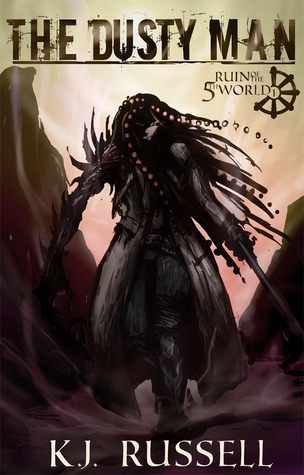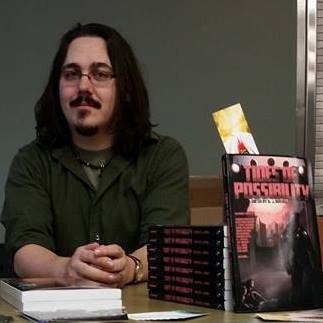A Guest Post by Kevin Ikenberry
After I seriously took up writing, the very first con I attended was MileHiCon in 2012. I’d moved to Colorado a couple of years before and while I’d attended the local Pikes Peak Writers Conference, my first foray into science fiction fandom couldn’t have been more wonderful. Billed as “the largest science fiction and fantasy literary convention in Colorado,” MileHiCon did not disappoint. My memories of that first con are great. I found the panels I crutched in and out of inspiring and the people pleasant and approachable. (Yes, I was on crutches, and no it was not fun!) I knew from the first day that I wanted to be involved in any way that I could. At MileHiCon, I knew I’d found a home.
A year later, I had an invitation to be a program participant. Unfortunately, a second foot surgery put me on my rear end that weekend, so I had to delay my MileHiCon debut until 2014. As it turns out, MileHiCon was my very first convention as a program participant. Can you say nervous? Well, that nervousness did not last long. Many of the friends I’ve made in the Denver area were there as well as a ton of new friends. From the moment I walked into the lobby and ran into my good friend Patrick Hester (SFSignal / Functional Nerds), I felt even more at home than I did the first year.
Now that I’ve been to WorldCon and several other local/regional cons, I can honestly say that MileHiCon is in my top three cons, maybe even top two. Over the past few years, the con has increased in membership and offerings to include costuming, gaming, art, and media tracks. What makes this con special are the people. Last year, a group of us aptly named “The Handsome Authors Society” sponsored a networking event. There were more than a hundred folks who dropped by and had a drink with other authors and editors. Making new friends has never been easier.
The MileHiCon committee are a group of wonderful and hardworking volunteers who have always made me feel like I was part of the family. And from my very first panel, the audiences were fun and engaging. Mentioning my first novel sale, that had happened less than a week before the 2014 con, earned very nice rounds of applause and several “Good luck!” or “Let us know when it’s released!” calls that left me beaming.
(NOTE: Sleeper Protocol is slated for release by Red Adept Publishing in winter 2015-16)
What’s more? Last year, I took my wife to MileHiCon, her very first con experience. We decided that MileHiCon was a perfect con to bring our kids to. There were a lot of young fans and cosplayers in the crowd last year, and a great time was had by all. For our young superheroes-to-be, it will be a perfect place to start. I can’t wait to share MileHiCon with them.
MileHiCon 47 takes place October 23-25, 2015 at the Denver Tech Center Hyatt. For more information on the convention, please check out www.milehicon.org. This year’s Guests of Honor include authors Kevin Hearne and Kristine Kathryn Rusch, artist Ursula Vernon, and toastmaster James Van Pelt. The list of confirmed participants is fantastic with over ninety confirmed authors.
In short, MileHiCon is a wonderful convention put on by amazing folks. It’s growing every year and is family friendly. Most importantly, it’s a great chance for fans to get to know their favorite authors and meet emerging authors, too. There is something for everyone at MileHiCon. Hope to see you there.
Guest Bio
Kevin Ikenberry is a Colorado based science fiction and horror author. His debut novel, Sleeper Protocol, will be released from Red Adept Publishing tentatively in January 2016. A lifelong space fanatic, Kevin continues to work with space every day. He can be found online at www.kevinikenberry.com and on Twitter (at)TheWriter Ike.




